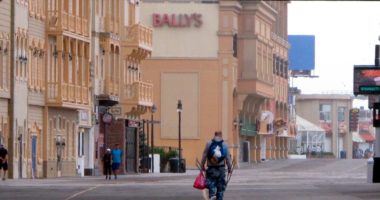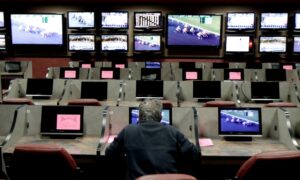Atlantic City Casinos Need 5-Year PILOT Relief, NJ Assemblyman Says


Atlantic City casinos were hit hard by the coronavirus pandemic in 2020 and the potential economic challenges ahead are concerning to one local lawmaker. Declining gambling revenue at Atlantic City casinos would result in lower tax payments to the city. It is a scenario that worries local officials because it threatens to undermine New Jersey’s efforts to stabilize Atlantic City’s finances.
State Assemblyman John Armato, D-Atlantic, introduced a bill to alter the 10-year casino payment in lieu of taxes (PILOT) law. The legislation would revise the annual amount owed by the casinos for the next five years in light of COVID-19’s impact on the industry.
The amount Atlantic City casinos pay in annual property taxes is directly tied to gross gambling revenue. The casinos make payments based on total revenue from brick-and-mortar gambling, iGaming, and sports betting.
The unique arrangement is the result of a gambling revenue tier structure outlined in the PILOT bill, which was signed into law in 2016.
New PILOT law corrects gaming revenue calculations
The casino PILOT bill directly ties annual payments to total gambling revenue. If the gambling industry does well, the amount paid out goes up.
A rise in revenue from online gambling and sports betting helped offset losses at brick-and-mortar casinos last year. However, much of that revenue does not go to Atlantic City casinos. It goes to third-party operators.
As a result, Atlantic City casinos are paying taxes on revenue that does not go to them.
Atlantic City casinos believe that is unfair.
Armato’s bill would remove online gambling and sports revenue from the Atlantic City casinos’ PILOT calculations.
“Since the implementation of the PILOT program, internet gaming and sports betting have been overwhelmingly successful. Because of this success, the casinos were exceeding the payment expectations as stated in the original PILOT program,” Armato said.
Atlantic City casinos need help in the wake of COVID-19
Armato said the casinos may be unable to make their required annual property payments unless the PILOT law is amended.
The casino PILOT funds a significant portion of Atlantic City’s annual operating budget. In 2020, the casino PILOT accounted for $86.2 million of the city’s $210.7 million budget.
Atlantic City casinos posted an 80% decline in operating profits last year. Thousands of local residents lost their jobs when the casinos closed for almost four months.
“It’s been a long and hard year under COVID, for the residents and for the casinos,” Armato told Play NJ. “After many discussions, we think it is in the best interest of the residents of Atlantic City to alter these last five years of payment to ensure that the casinos are able to rebound from COVID.”
Atlantic City casinos critical to South Jersey economy
Collectively, Atlantic City’s nine casinos are among New Jersey’s largest industries. They pay millions of dollars every year in taxes and fees to the state, county, and city governments. The gambling parlors also provide more than 20,000 jobs.
Armato said the goal of the bill, along with a recently proposed extension of the state takeover of Atlantic City, is the city’s “long-term success.”
“Before COVID, Atlantic City was on the rebound. We had two new successful casinos, community revitalization projects, and infrastructure projects underway, jobs and education were soaring in our resort town. COVID put a hold on all of that,” Armato said.
Returning to pre-COVID levels in AC
The primary focus now, he said, should be, “ensuring that our gaming and hospitality industries return to pre-COVID levels, and continue to develop.”
“This bill takes direct action to ensure that is the case,” Armato said. “(Atlantic) City has tremendous potential and as we enter the last five years of the tax stabilization program, we should ensure that our transition back to a traditional property tax model doesn’t shock the city all at once.”
A cost analysis of the bill is pending. So, it is unclear how much the casinos will pay under the proposal.







